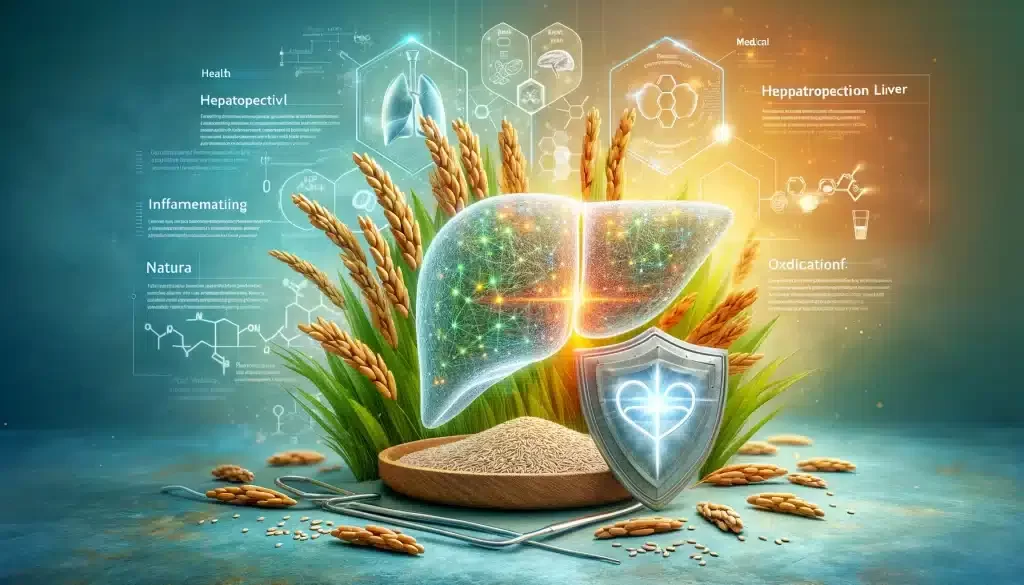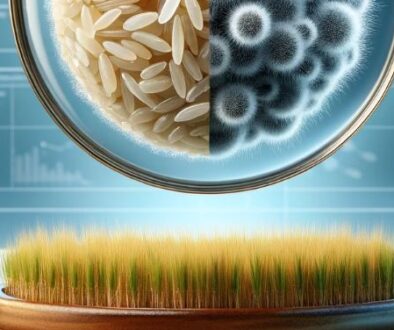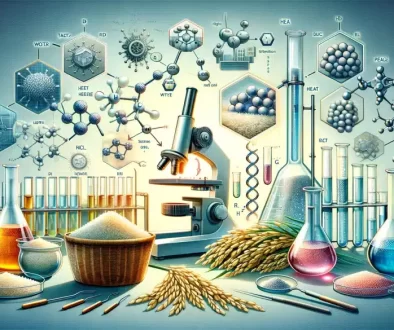Study on the hepatoprotective effect of rice peptides
Explore the hepatoprotective benefits of rice peptides in reducing liver damage, inflammation, and oxidative stress with promising health implications.
Keywords: broken rice,starch sugar,bioactive peptide,rice peptide,rice protein,liver
protection
Introduction
Extensive literature from both domestic and international sources has explored the physiological functions and metabolic mechanisms of rice peptides, uncovering a variety of benefits such as rapid absorption, enhanced immunity, antioxidation, fatigue resistance, blood pressure and lipid reduction, and cardiovascular disease prevention. These multifaceted functionalities are a primary reason for the keen interest in rice peptides among scholars and research institutions. Currently, rice peptide production in China, despite varying processes, predominantly results in powdered products. This approach aligns with the modern food industry’s trend towards products that are both nutritional and medicinal. Rice peptides obtained through spray drying show promising market potential and significant socio-economic benefits for health food development. This chapter evaluates the pharmacological activities of rice peptides, focusing on their hepatoprotective efficacy through systematic studies on inflammatory responses, oxidative stress, and histopathological changes.
Research Methods
Experimental Animals
Forty ICR male mice, aged 6-8 weeks and weighing 18-22 g, were acquired from Jinan Pengyue Experimental Animal Breeding Co., Ltd. These mice underwent quarantine before the actual experiments to ensure normal behavior, particularly in activity and diet. The mice were housed under specific conditions including temperature, humidity, and light/dark cycles, with free access to food and water.
Mouse Grouping, Medication, and Modeling
After 3 days of acclimation, the mice were randomly divided into five groups: blank, control, positive (HGP), low-dose rice peptide (RPL), and high-dose rice peptide (RPH). Different treatments were administered, including HGP for the positive group and varying doses for RPL and RPH groups. A model of acute liver damage was induced using CCl4, excluding the blank group. Liver damage markers and inflammatory factors were measured 24 hours post-modeling.
Biochemical and Inflammatory Factor Measurement
Serum levels of liver damage markers (ALT, AST, LDH) and inflammatory factors (TNF-α, IL-1β, IL-6) were assessed using ELISA kits. Additionally, liver tissue homogenates were prepared for oxidative stress parameter evaluation (MDA, SOD, CAT).
Histopathological Analysis
Liver tissue samples were fixed, dehydrated, embedded in paraffin, sectioned, and stained with Hematoxylin and Eosin (HE) for microscopic examination of cellular and tissue morphology.
Results and Discussion
Serum Biochemistry
Increases in ALT, AST, and LDH levels were observed in the model group, indicating liver cell damage due to CCl4 exposure. Compared to the model group, the treatment groups (HGP, RPL, RPH) showed significant reductions in these markers, suggesting protective effects against acute liver injury, with HGP showing the most significant effect.
Inflammatory Factors
The model group showed increased levels of TNF-α, IL-1β, and IL-6, indicating an immune-inflammatory response to liver cell damage. The treatment groups exhibited significant reductions in these inflammatory markers compared to the model group, demonstrating their anti-inflammatory effects, with the order of efficacy being HGP > RPH > RPL.
Oxidative Stress Parameters
The model group showed elevated MDA levels and reduced SOD and GST levels, indicating oxidative stress. Treatment groups demonstrated significant improvements, reducing MDA levels and increasing SOD and GST levels, indicating the antioxidative potential of the treatments.
Histopathological Findings
HE staining revealed liver cell damage and inflammation in the model group. In contrast, the treatment groups showed reduced liver damage, with fewer instances of balloon-like changes and necrosis, indicating protective effects on liver tissue.
Conclusion
This study on the hepatoprotective effects of rice peptides demonstrated their potential in reducing liver damage, inflammation, and oxidative stress induced by CCl4 in mice. The findings suggest that rice peptides, especially when used in higher doses or in combination with traditional hepatoprotective agents like HGP, can significantly mitigate liver damage and improve liver health. These results underscore the therapeutic potential of rice peptides in the development of functional foods and supplements for liver health support.
For more further detailed information of this research, feel free to contact our team for asssistance.
Original authors: Li Yinghui, Yuan Wenpeng (Qilu University of Technology, Jinan, 250353)
About ETprotein:
ETprotein, a reputable rice protein Chinese factory manufacturer and supplier, is renowned for producing, stocking, exporting, and delivering the highest quality organic bulk vegan protein and plant proteins. They include Organic rice protein, clear rice protein, pea protein, clear pea protein, pumpkin seed protein, sunflower seed protein, mung bean protein, etc. Our offerings, characterized by a neutral taste, non-GMO, allergen-free attributes, cater to a diverse range of industries. We serve nutraceutical, pharmaceutical, cosmeceutical, veterinary, as well as food and beverage finished product distributors, traders, and manufacturers across Europe, USA, Canada, Australia, Thailand, Japan, Korea, Brazil, and Chile, among others.
Our specialization includes exporting and delivering tailor-made protein powder and finished nutritional supplements. Our extensive product range covers sectors like Food and Beverage, Sports Nutrition, Weight Management, Dietary Supplements, Health and Wellness Products, and Infant Formula, ensuring comprehensive solutions to meet all your protein needs.
As a trusted company by leading global food and beverage brands and Fortune 500 companies, ETprotein reinforces China’s reputation in the global arena. For more information or to sample our products, please contact us and email sales(at)ETprotein.com today.












